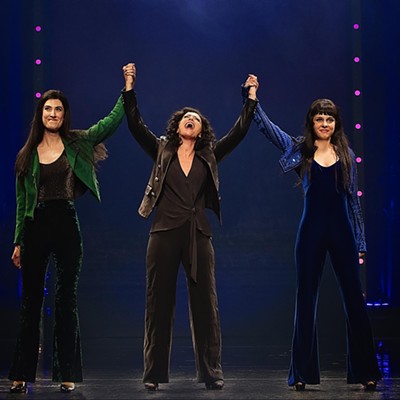The American Dream killed Jay Gatsby and Willy Loman, but their TV counterparts have mostly fared better. Sure, Walter White ends up in a metaphorical ditch and Tony Soprano may too. But the serialization of TV storytelling largely means that characters on shows like Roseanne, The Fresh Prince of Bel-Air, Mad Men, and Empire — which explicitly deal with upward mobility and its treacherous pitfalls — tend to survive literal and figurative bullets to reflect on their slippery existences another day.
Stories about the American Dream date back at least as far as the Horatio Alger novels of the nineteenth century, but Starz’ brilliant Survivor’s Remorse still manages to ask fresh questions about the pursuit of life, liberty, and happiness amid eye-popping wealth. “I don’t think we’re trying to do something with the show that’s slight,” says showrunner Mike O’Malley of his foul-mouthed family sitcom, about a black Boston clan trying to stay grounded and loving when one of their own becomes a star NBA player and the rest financially dependent on him. “We’re on a pay-cable network, so [we] can have a frank discussion with big stakes and not be restricted if the subject matter is adult,” he adds. Case in point: the most recent episode’s surprisingly honest and compassionate discussion — even by the high standards on this show — about “vaginal rejuvenation.”
Except for its doleful title and unjustly low profile, Survivor’s Remorse enjoys — like its characters — an embarrassment of riches. It’s hard to know what to praise first about the show, which just might be the funniest on TV: the crackerjack ensemble and their dizzyingly quick banter, the playful but profound writing that effortlessly juggles multiple tones and perspectives, or the searching explorations of the secrets to and responsibilities of success.
“It's like we fell from the Titanic, landed in a lifeboat, and survived,” marvels Cam Calloway (Jessie T. Usher), Atlanta’s new golden boy on the basketball court. Describing his Dorchester neighborhood in Boston as a “gang-infested place where no kid should have to come of age,” he confides to his cousin and manager Reggie (RonReaco Lee), “I feel guilty that I'm surviving and there's people I can still help back home who are drowning.”
Now in its second season and just renewed for a third, Survivor’s Remorse is a true collaborative effort. The show started with Maverick Carter, a childhood friend of LeBron James, who became the basketball star’s business partner, much like Cam and Reggie’s intertwined relationship on the show. (Both Carter and James serve as executive producers.) “So Maverick had heard of this thing called ‘survivor’s remorse,’ where people survive a plane wreck or a car wreck, and they live,” says O’Malley. “And what’s tough about coming from a tough background is that the shit is still there. The ship hasn’t sunk. You’ve escaped your circumstances, but very easily you can throw a life preserver to people who can barely keep afloat, when there are people you can help with a scholarship, rent, extra cash, help. It’s hard, because how do you go on and become who you’re going to be?”
The decision to set the show around a family, on the other hand, can be attributed to the Boston-born O’Malley, who worked for four years as a staff writer on Showtime’s dysfunctional-kinfolk dramedy Shameless. “With a family, there are ties that bind you, blood ties,” he says. “These are very fraught with meaning and history, and everyone is from a family. It’s something that is universally relatable. But what happens [in a family] when one member becomes the golden goose?”
Cam’s natural generosity is regularly discouraged by Reggie’s fear that his cousin will be taken advantage of by the tough guys they used to know. But the hardest people to say no to are, of course, Cam’s family, including his outspoken mother, Cassie (Tichina Arnold), his horndog-lesbian sister, Mary Charles, a/k/a M. Chuck (Erica Ash), and his eccentric uncle Julius (Mike Epps).
Much of the solid six-episode debut season revolves around Cam and Reggie attempting to convince the rest of their family to be salaried, rather than “enabled” to hit Cam up for cash whenever they want. The high cost of a “vaginal rejuvenation” procedure still requires Cassie to (humiliatingly) ask her squeamish son for money and explain why she’d like to undergo the surgery. The only family member not directly profiting from Cam is Missy (Teyonah Parris), Reggie’s upper-middle-class, business-school-educated wife.
The class difference between the Calloway clan and Missy, who’s the most bookishly politically conscious of the group, allows Survivor’s Remorse to embrace the diversity of America’s black communities. “We thought that Atlanta was a real center of black America,” says O’Malley of the show’s setting. “Some of the things that have been in the newspaper, like the Confederate flag...you don’t really see people in the North lobbying for that. Since this family is from Boston, they have an opinion about it.” In the pilot, Missy moans to her husband about having to move to the South: “You should have made Cam sign in New York or L.A., somewhere the Underground Railroad went to instead of away from.”
On the show, jokes about slavery pop up more frequently than basketballs — an inevitability, according to O’Malley. “The biggest mountain in Atlanta has three figures on it: Robert E. Lee, Jefferson Davis, and Stonewall Jackson. We joke about it, calling it Mount Racemore,” he says. “But that history is everywhere.” Racial realities are confronted head on, like the unexpectedly high price of some careless ribbing that a golfer is “pretty cool for a white dude.” The vulnerabilities of fame that Cam continues to skirt include a media attack on his mom for bragging in front of a camera that she whupped him as a kid. When Cam and Reggie try to get her to publicly apologize, she accuses, “You’re trying to mainstream me.”
When the Calloways get caught in a different mini-scandal in the second season, they find themselves in the crosshairs of a crusader trying to make an example of them. “What we got here is a politician trying to make a name for herself,” declares their lawyer. “There is no more sanctimonious force on the face of this earth.” “What's sanctimonious mean?” asks Cam. “White,” answers Reggie, without missing a beat. The racial humor isn’t for everyone, but rest assured that all the jokes punch upward.
Equally refreshing is the show’s embrace of homosexuality, especially in an African-American context. A longtime character actor, O’Malley is most recognized on the street for playing Burt Hummel on Glee. “One of my experiences working on Glee was that I was at the epicenter of a relationship that mattered quite a bit to young gay Americans and their parents. And on that show, Kurt was coming into his own, emerging into his identity,” he recalls.
For Survivor’s Remorse, “I wanted to write a character who had fully arrived at who she was, was unapologetic about it, was in a family that had no quarrel about that, and who would fiercely support the person she decided to be. And if there’s a quarrel with her character, it’s about the way she treats other people. It’s not about the fact that she enjoys the sexual company of other women.” O’Malley hasn’t given up on acting; he’ll play Will Smith’s boss in the football drama Concussion, out this Christmas.
Despite the millions of dollars flying around Survivor’s Remorse, O’Malley doesn’t see his show as a story about LeBron James and the friend who’s gonna convert his new money into old money. “A lot of people don’t have success as professional athletes or entertainers,” asserts O’Malley, “and they completely forget where they came from [anyway]. So much of that is putting on a show.” The trials of the Calloways, he says, are a “just-a-little-more-amplified version of how everyone has to go through life.”
If you do happen to be offered the contents of Scrooge McDuck’s vault, though, O’Malley has one piece of advice: “Call my dad, Tony O’Malley. Self-made man, hardworking. He’ll tell you what to do with it.”
***
Inkoo Kang is the TV critic for the Village Voice. She publishes widely on film and television.
Support Us
Houston's independent source of
local news and culture
account
- Welcome,
Insider - Login
- My Account
- My Newsletters
- Contribute
- Contact Us
- Sign out
Mike O’Malley’s Brilliant Family Sitcom 'Survivor’s Remorse' Asks New Questions About the American Dream
Inkoo Kang September 11, 2015 7:00AM
[
{
"name": "Related Stories / Support Us Combo",
"component": "11591218",
"insertPoint": "4",
"requiredCountToDisplay": "4"
},{
"name": "Air - Billboard - Inline Content",
"component": "11591214",
"insertPoint": "2/3",
"requiredCountToDisplay": "7"
},{
"name": "R1 - Beta - Mobile Only",
"component": "12287027",
"insertPoint": "8",
"requiredCountToDisplay": "8"
},{
"name": "Air - MediumRectangle - Inline Content - Mobile Display Size 2",
"component": "11591215",
"insertPoint": "12",
"requiredCountToDisplay": "12"
},{
"name": "Air - MediumRectangle - Inline Content - Mobile Display Size 2",
"component": "11591215",
"insertPoint": "4th",
"startingPoint": "16",
"requiredCountToDisplay": "12"
}
,{
"name": "RevContent - In Article",
"component": "12527128",
"insertPoint": "3/5",
"requiredCountToDisplay": "5"
}
]
KEEP THE HOUSTON PRESS FREE...
Since we started the Houston Press, it has been defined as the free, independent voice of Houston, and we'd like to keep it that way. With local media under siege, it's more important than ever for us to rally support behind funding our local journalism. You can help by participating in our "I Support" program, allowing us to keep offering readers access to our incisive coverage of local news, food and culture with no paywalls.
Inkoo Kang is a regular film contributor at Voice Media Group. VMG publications include Denver Westword, Miami New Times, Phoenix New Times, Dallas Observer, Houston Press and New Times Broward-Palm Beach.
Contact:
Inkoo Kang
Trending Arts & Culture
- Reviews For The Easily Distracted:
Abigail - Houston Bookstore Crawl Celebrates Small Businesses and Literary Diversity
- Best Bets: Earth Day, Noche Caliente and a Spring Festival
-
Sponsored Content From: [%sponsoredBy%]
[%title%]

Don't Miss Out
SIGN UP for the latest
arts & culture
news, free stuff and more!
Become a member to support the independent voice of Houston
and help keep the future of the Houston Press FREE
Use of this website constitutes acceptance of our
terms of use,
our cookies policy, and our
privacy policy
The Houston Press may earn a portion of sales from products & services purchased through links on our site from our
affiliate partners.
©2024
Houston Press, LP. All rights reserved.




